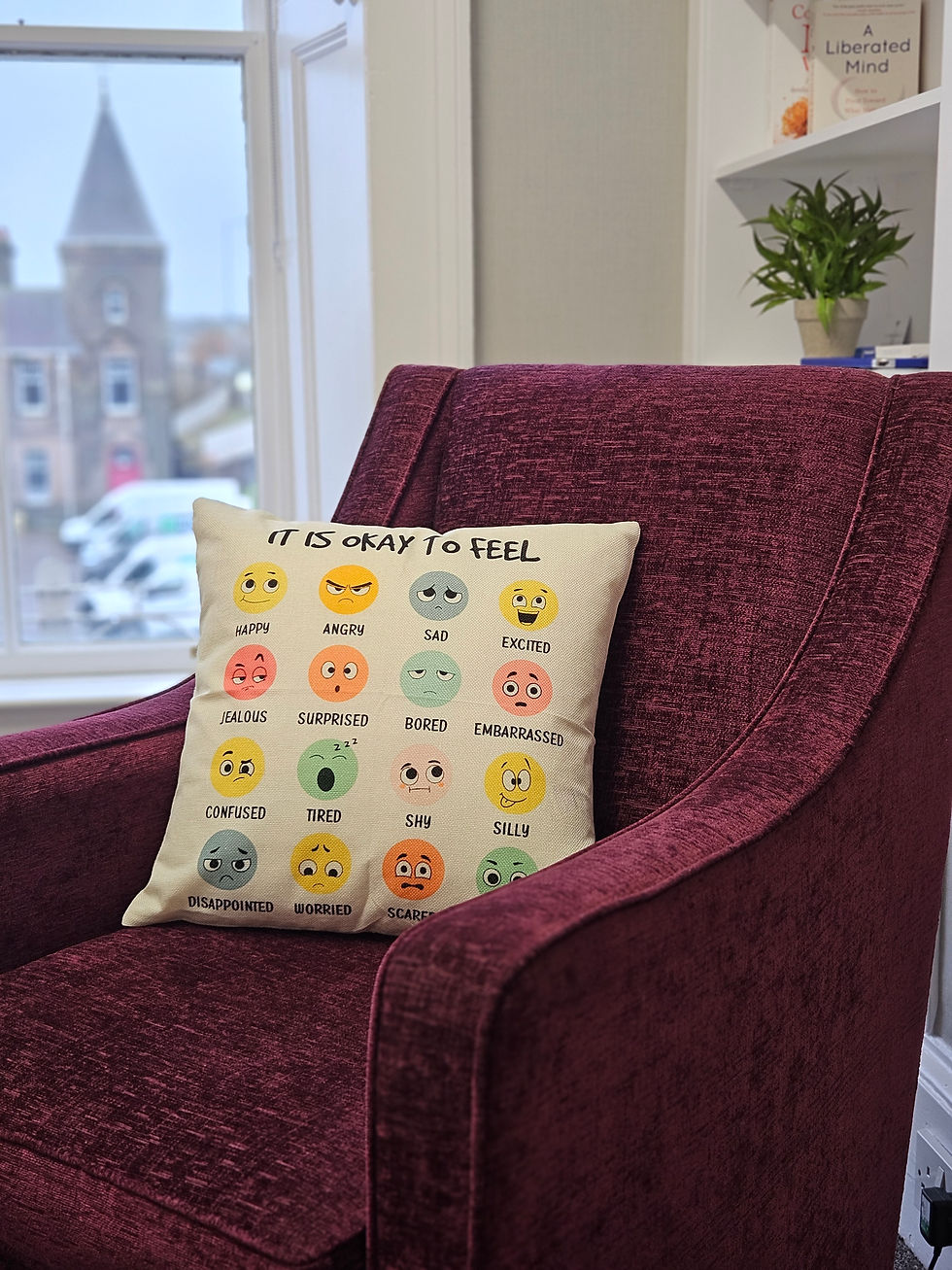Do I need therapy?
- Audrey
- Sep 9, 2025
- 2 min read
As a psychologist, it’s not uncommon for clients or potential clients to ask me: “Do I need therapy?”
It’s such a human question, and often it feels heavy. Sometimes it’s asked with apprehension, anxiety, or even shame. So, let’s unpack that a little…
I’m always curious, with myself and with clients, about what’s underneath that question. Sometimes what’s really being asked is:
Am I broken?
Can I be fixed?
Will I always feel this way?
Is what I’m going through normal?
These are tender questions, and they deserve to be voiced and met with care. Therapy can be a safe space to do exactly that.
Why “Do I need therapy?” can feel unhelpful
The question itself can feel a bit black-and-white. It suggests there’s a right or wrong answer, or that therapy is only for people who have “serious” problems. It can also leave you feeling like the power to decide lies somewhere outside of yourself. And if you’re not able to access therapy, it may leave you feeling hopeless or disempowered.
Reframing the question
Instead of “Do I need therapy?” you might find it more helpful to ask yourself (or a therapist):
Could I benefit from therapy?
Are there evidence-based therapy approaches that have been shown to help with the symptoms or patterns I’m experiencing?
Would the benefits of therapy outweigh the cost for me at this time?
These questions open up more room for choice, and they put the focus back where it belongs: on you and what feels right for your life.
What therapy can offer
People come to therapy for all sorts of reasons, and the benefits are just as varied. Some of the most common ones include:
Gaining a deeper sense of self-awareness and understanding.
Having a safe, supportive space where you can bring whatever you’re carrying.
The chance to experiment with new ways of thinking, responding, or relating.
Alongside these broader benefits, it can also be helpful to know that certain approaches, like Cognitive Behavioural Therapy (CBT), are backed by strong research evidence. CBT is recommended by national guidelines (such as NICE in the UK) for a wide range of difficulties, including depression, panic, generalised anxiety, OCD, social anxiety, and health anxiety.
That means if you’re struggling with these kinds of issues, therapy isn’t just a supportive space, it can also offer tried and tested tools to help you understand patterns, reduce distress, and build more helpful ways of coping.
Therapy isn’t about being “fixed.” It’s about giving yourself room to grow, reflect, and feel supported along the way, whether that’s through practical strategies, new perspectives, or simply having someone alongside you as you navigate life’s challenges.
If you’re curious…
If you’ve been sitting with the question of whether therapy is right for you, maybe the real question is: “What might I gain by giving myself this space?”
If you’d like to find out more or book an appointment, you can reach me by email or book a compatibility call.



